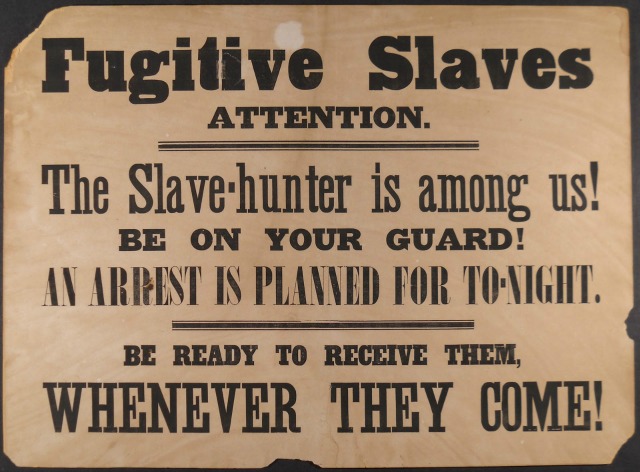
California was more than just a destination for grizzled mine workers looking to capitalize on the Gold Rush of the 1800s. It was also a destination for former slaves to begin new lives and earn economic freedom. However, under pressure from pro-slavery advocates from the South, a fugitive law was passed on this day in 1852, upending the lives of freed slaves throughout the state.
SEE ALSO: Rodeo Performer, Entertainer Bill Pickett Died On This Day In 1932
Although California was part of the Union and no longer a federal state, it was assumed that under the rules of the Constitution, freed slaves could enter without fear of capture as slavery was now outlawed. However, a southern politician that sat on the state’s assembly fought for a law that would retroactively name slaves who entered the state as fugitives.
These so-called “fugitive slave laws” were brazen attempts to return escaped slaves in other Southern states to their masters.
Ohio State University history professor Stacey Smith wrote extensively about the law in her 2013 book “Freedom’s Frontier: California and the Struggle over Unfree Labor, Emancipation, and Reconstruction” and detailed the struggles of Carter Perkins, Robert Perkins, and Sandy Jones, three former slaves from Mississippi who headed to California. The trio amassed a small fortune in their time mining for gold in 1851, but a year later, their lives would change.
Ms. Smith writes:
Within less than a year of statehood, however, White southern-born politicians began to agitate for legal protections for masters who had taken their bondpeople into California when it was still a federal territory.
Led by assemblyman Henry Crabb, a pro-slavery Whig from Tennessee, these southerners asserted that the federal territories were the common property of all American citizens. Echoing the arguments of the Slave South’s most vocal spokesman, John C. Calhoun, they insisted that the U.S. Constitution guaranteed slaveholders the right to travel with their slave property in to any federal territory.
Neither Congress nor territorial governments could close slavery out of the territories. They therefore argued that California’s new antislavery constitution could not deprive masters of slaves who they brought before official statehood in September of 1850. Crabb and his southern-born allies in the pro-slavery branch of California’s Democratic Party pushed for a state fugitive slave law that would allow masters to hold the slaves who they had brought to California before statehood and take them back to the South. Any enslaved person who resisted this process would be criminalized as a fugitive slave.
Charles Perkins, who originally brought the trio of slaves with him to assist in mining as their former owner, was not successful in his mining efforts and left the slaves in California as he returned home. At the time, Charles struck an informal emancipation deal with the slaves, which stated that if they worked for one of Perkins’ friends for six months, they would be free to go. Operating under this assumption, the workers never thought that their freedom would be in any jeopardy.
But the Fugitive Slave law passed on April 15, 1852, and they were soon snatched from their homes by Green Perkins, a cousin of Charles Perkins.
After their capture, Robert Perkins, Carter Perkins, and Sandy Jones had the support of Sacramento’s small but vocal Black community and hired a White antislavery attorney, Cornelius Cole, to represent the men in court. Despite pro-slavery protests and threats to the judge, Cole was able to get the case tried in the state’s Supreme Court.
The high court ruled in favor of the law, however, and the deportation process began.
Smith says that the men allegedly escaped from their captors when a boat they were on made a stop in Panama. The fate of the three men has largely gone unknown and the Perkins slave case has been used as a benchmark of American History of the 1800s in recent times.
SEE ALSO: Jan Matzeliger Patents Shoe Lasting Machine On This Day In 1883
California Passed Fugitive Slave Law On This Day In 1852 was originally published on newsone.com

















